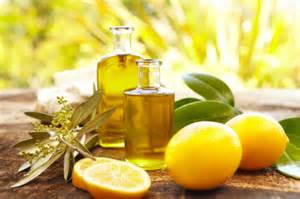c








Hospitals, Hospices and Nursing Homes
Hospitals and hospices need all the cheering up they can get, and essential oils are the perfect way to do it. Aside from the fact that they deodorize the clinical organic smells, and make the place smell fresh and charming, they can (if you use the right ones) cut down cross-infections.
Mr Fred dale of Dale Air Products, who has twelve years experience in installing essential oil diffusion-systems in hospitals, museums and other public buildings, says that 'synthetic materials, when interacting with certain other smells, won't get rid of those smells and you'll end up with a worse smell than you started with.'
Essential oils on the other hand, work very well. And they have other benefits. At the Worcester Hospital in Hereford a six-month trial showed that vapourizing lavender through the air caused patients to sleep in a more natural pattern and made them less aggressive during the day.
More than that, over the six months, some patients were weaned off their tranquilizers - simply by substituting lavender in the atmosphere, which has a calming effect on the brain. Mr Dale has devise a 'Reminiscence pack' which he supplies to day-care centres for the elderly. Five aromas are used together with a script by care staff to elicit memories from the old folk.
As you may know, elderly people tend to have a bad short-term memory but a very good long-term one, and if that long-term memory can be evoked, through aroma, their minds can be kept active recollecting their school days, youth, and happier times.
It is, apparently, very effective and much appreciated by all concerned. Meanwhile, an American diffuser-system company - AromaSys of Minneapolis - are also working with nursing homes for the elderly to explore ways of reducing 'wandering'. Here too, aromas are being used to create a nostalgic stimulus to kindle more dynamic states.
AromaSys has installed six hundred aroma-diffusion systems in the United States, including one at the St Croix Valley memorial Hospital in Winsconsin. In this fully registered general hospital, essential oils are diffused throughout the lobby, at a nurses' station and in the emergency waiting room. Here, family members wait to hear news of their sick relatives and it is obviously an extremely stressful place, made more bearable by the anxiety-relieving essential oils which are diffused in the atmosphere.
The hospital also has two 'floaters', mobile systems, which can be taken to any areas where they are particularly required, including the chemical dependency unit where people with drinking or drug problems are seen. Various aromas are used in different areas, at different times, depending on the requirements. The hospital administrator, Steve Urosevich, says his aim is to make patient's in hospital stay 'more humanizing, more personal and demystifying'.
In 1992 Drs William Redd and Sharon Manne at the memorial Sloan-Kettering Cancer centre in New York conducted tests to see whether aroma could reduce the anxiety of patients undergoing magnetic resonance imaging procedures. They compared stress levels between forty-two patients who breathed normal air with thirty-eight who breathed air containing molecules of heliotropin - a sweet, vanilla-like fragrance naturally occurring in pepper oil. Sixty-three per cent of those exposed to the aroma experienced reduced anxiety levels.
Stress reduction is a major concern of the London Lighthouse - a specialist- facility for those with HIV-related problems. For many years now they have been offering complementary therapies in addition to the usual medical treatments. Aromatherapy treatments have an extremely high uptake rate, but because of financial restrictions demand outstrips supply.
The main benefits are perceived to be general relaxation and stress and anxiety relief, which in turn positively affect the immune system. Wendy Peters of the medical and complementary health service department says that aromatherapy treatments seem to prevent the onset of disease, although they can only be an anecdotal observation as each client will be undergoing several different treatments at the same time. I find it very touching that many clients, or their family and friends, ask that essential oils are diffused in the atmosphere during the death process itself.
At the St John's and St Elizabeth's Hospital London all eleven midwives have become trained aromatherapists. They have no doubt as to the benefits of essential oils. They offer them to women during the ante-natal stage, during the birth itself, and in after-care - for both mother and child.
They use essential oils for physical ailments such as nausea, swollen legs, muscular pains, mastitis and infections. But anxiety, stress and tension may also accompany pregnancy and birth, particularly for women who have had previous bad experiences, and blood- pressure levels must also be controlled.
There is a growing interest in aromatherapy on the part of nurses who were inspired by the good work done by members of the International federation of Aromatherapists, as part of the 'Aromatherapy in Care' project. These practitioners worked with children, cancer and AIDs patients, among others. The Royal College of Nursing, in the recognition of the interest, has produced its ow literature on the subject, and many small-scale studies are being carried out all over the country.
At the Royal Sussex County Hospital in Brighton, for example, a trial involving six-patients in the intensive care and coronary care units were put into three groups which would receive either aromatherapy massage, massage without oils and nothing - i.e. the control group. (Massage was done to the feet.
Over a five-week period various measurements were taken. Systolic blood pressure measurement showed a reduction in the control group decreased by 50 per cent ( massage alone was 40 per cent); decrease in respiratory rate was 16 per cent in the control and 75 per cent in the aromatherapy group (41 per cent massage alone); while reduction in heart ate was 41 per cent for the control and 91 per cent for the aromatherapy group (58 per cent massage alone).
Hopefully, as ignorance and prejudice breaks down, more trials should be instigated. Experience has shown that no harm comes of aromatherapy, and that patients very much appreciate its benefits. As 'patient care' becomes a buzz-word in the restructured National health Service, we should see more attention being given to aromatherapy.
Reference:The Fragrant MInd:Valerie Ann Worwood
- Home
- Addiction
- JASMINE- Floral - Jasminum Officinale,J. grandiflorum, J.sambac
- History of Drugs-4
- History of Drugs
- History of Drugs-3
- The Somatid Connection
- Rosemary-Personality-Profile
- Personality In Perfumery
- Cinnamon - Personality profile
- Personality Tests
- The Water Connection
- Mind-Mood-Emotion-Quick Reference Chart - S - Un
- History of Drugs-5
- Mind-Mood-Emotion-Quick Reference Chart - Un - W
- Emotional-Healing Problems-A-B-Positive and Negative Mood Charts
- Emotional-Healing Problems-B-H-Positive and Negative Mood Charts
- How Essential Oils Work On the Brain
- Cardamom Personality Profile
- Essential Oils Used For Emotional Healing-A-M
- Lavender- Floral/Herbie
- Positive Mind, Mood & Emotion - Alertness
- Juniper personality profile
- JASMINE- Floral - Jasminum Officinale,J. grandiflorum, J.sambac
- HYACINTH - Floral - Hyacinthus Orientalis
- Emotional Healing Introduction - 2
- Emotional Healing Introduction
- Memory Enhancement, Mental Clarity and Efficiency
- How To Get Through Life In One Piece
- HELICHRYSUM (Immortelle or Italian Everlasting)
- GRAPEFRUIT - Fruitie - Citrus paradisi
- The Art Of Smelling - Which Method - Aromaprofiles
- The Art Of Smelling
- GINGER PERSONALITY PROFILE
- Geranium - Pelargonium graveolens Personality Profile
- Frankincense Resinie - Boswellia Carteri
- Quality and Purity - 2 - AromaProfiles
- Quality and Purity - AromaProfiles
- ChemoTypes - AromaProfiles
- Adaptogens - AromaProfiles


